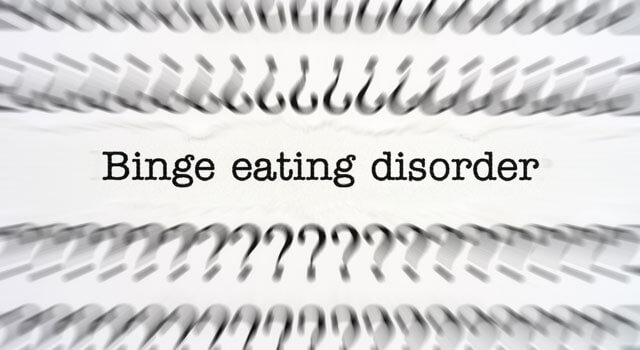Did you know the most common eating disorder in America isn’t Anorexia or Bulimia? It’s actually a newly recognized disorder known as BED, Binge Eating Disorder. More Americans struggle with BED than anorexia or bulimia combined! Approximately 8% of American adults suffer from BED in their lifetime. Chances are, you know at least 1-2 more people who are struggling with this disorder too.
Unfortunately, even though BED is very common, it still comes with a powerful amount of stigma. It’s very easy to internalize that discrimination and start to believe the negative messages about our appearance, self-worth, intelligence, and so on”¦
The thing is, an eating disorder does not define us. We are all so much more than the sum of our behaviors. We all have roles, relationships, aspirations, and goals. It’s not okay to discriminate against people with other diseases like depression or cancer, so why would it be okay to do so to people with BED?
Binge Eating Disorder
In order to survive, we need adequate nutrition throughout the day. In the United States, people typically eat three meals a day plus snacks. When thinking about binge eating disorder, it’s not so much what you are eating, but how you are eating and why you are eating. Reflecting and examining the way you eat may provide insight into areas that warrant care and help. Eating has the potential to be neutral, rather than guilt-ridden and stigmatizing.
We’ve created a list of 4 behaviors that verge towards binge eating disorder. Our goal in doing so is to bring behaviors out into the open, so you can know you are not alone. Only then can you seek support and begin to make peace with food and your body.
Without any further ado, let’s get started with the:
4 S’s: Binge Eating Disorder Red flags & warning signs
1. Secrecy
Have you ever found yourself hiding food wrappers or receipts, eating when others go to bed, or minimizing the amount of food you ate? Hiding food or eating in private are some of the most common eating behaviors in people with BED. You may also find yourself avoiding social situations because you do not want to eat in front of others, due to fear of judgement. In fact, it is commonly found that people with BED will pretend to order extra food for someone else, even though they will be eating alone.
2. Silence
Have you found yourself isolating loved and trusted ones within your community? Due to the negative feelings associated with binges, you may struggle to be open about what you are experiencing. This looks like not talking to your family/friends or reaching out to your doctor/therapist. Often, coping with food becomes the comfort for these emotions. Having support is critical for success.
3. Speed
Do you ever notice that you are the first one done eating at the table? You look around and your plate is clean, while others are still on their first few bites. A common eating behavior in people with binge eating disorder is eating a large amount of food, quickly, and in a short amount of time. This often causes a “stuffed” feeling, indigestion, or other physical discomforts. In addition, you might hover over the counter, not sit down, or eat quickly in the car or on-the-go.
4. Shame
One of the hallmarks of BED is the guilt and shame that follows a binge eating episode. Have you ever felt completely out-of-control when it comes to eating? The secretive eating may be enjoyable in the moment, but often leads to feelings of emotional guilt and physical discomfort. Not only do people feel painfully full and upset with themselves for overeating again, but they also feel bad looking at any evidence of the binge.
Recover from Binge Eating Disorder Today
If you identify with any of these red flags of binge eating disorder, consider seeking professional help. Having a qualified support team can help to counter the silence and shame associated with BED. Sharing your emotions and experience and help to counter the secrecy. Learning mindfulness can help to counter the speed eating. [Treatment for binge eating disorder] can help us break free from that shame, and rebuild our confidence while we learn a healthier relationship with food. Remember, you’re not the only one; others have successfully learned new coping skills to heal from BED.
Related Articles on Binge Eating Disorder: Binge Eating Disorder Treatment, About Binge Eating Disorder,Binge Eating Disorder (BED),Binge Eating Disorder in America, Treatment for Binge Eating Disorder
Hudson, J. I., Hiripi, E., Pope, H. G., & Kessler, R. C. (2007).References:
The prevalence and correlates of eating disorders in the national comorbidity survey replication. Biological Psychiatry, 61(3), 348-358.
National Association of Eating Disorders (NEDA).
https://www.nationaleatingdisorders.org/statistics-research-eating-disorders














